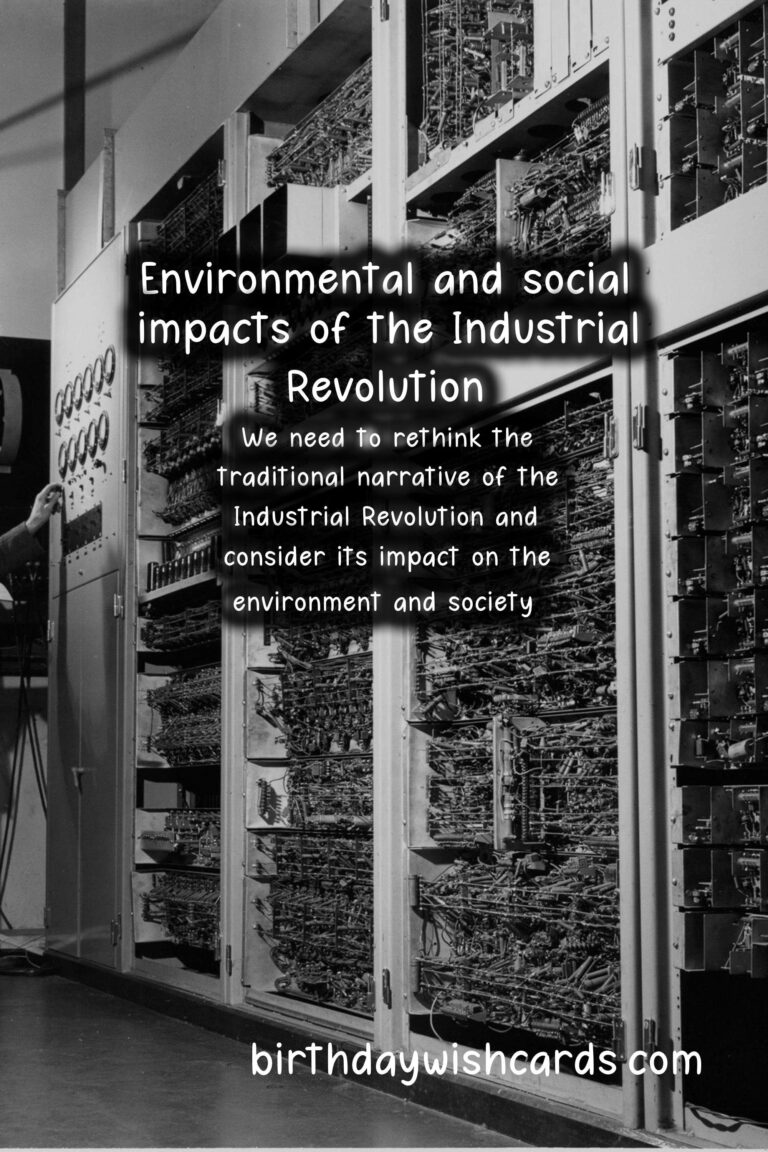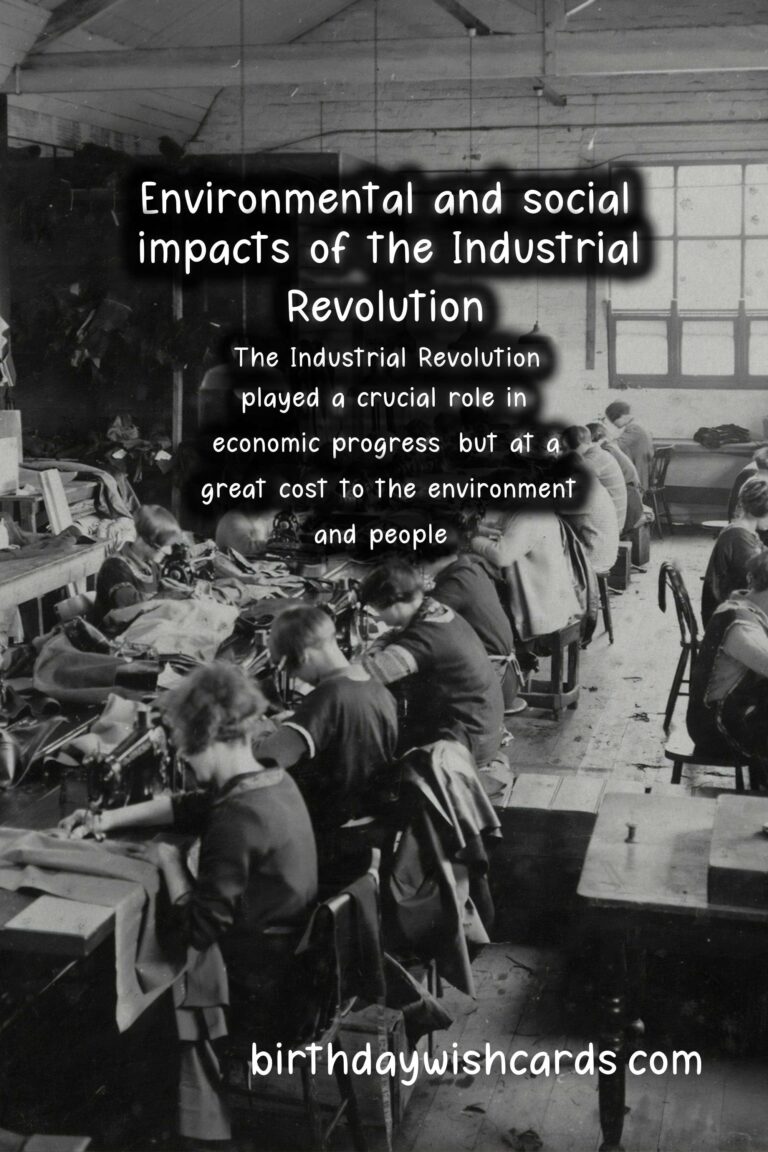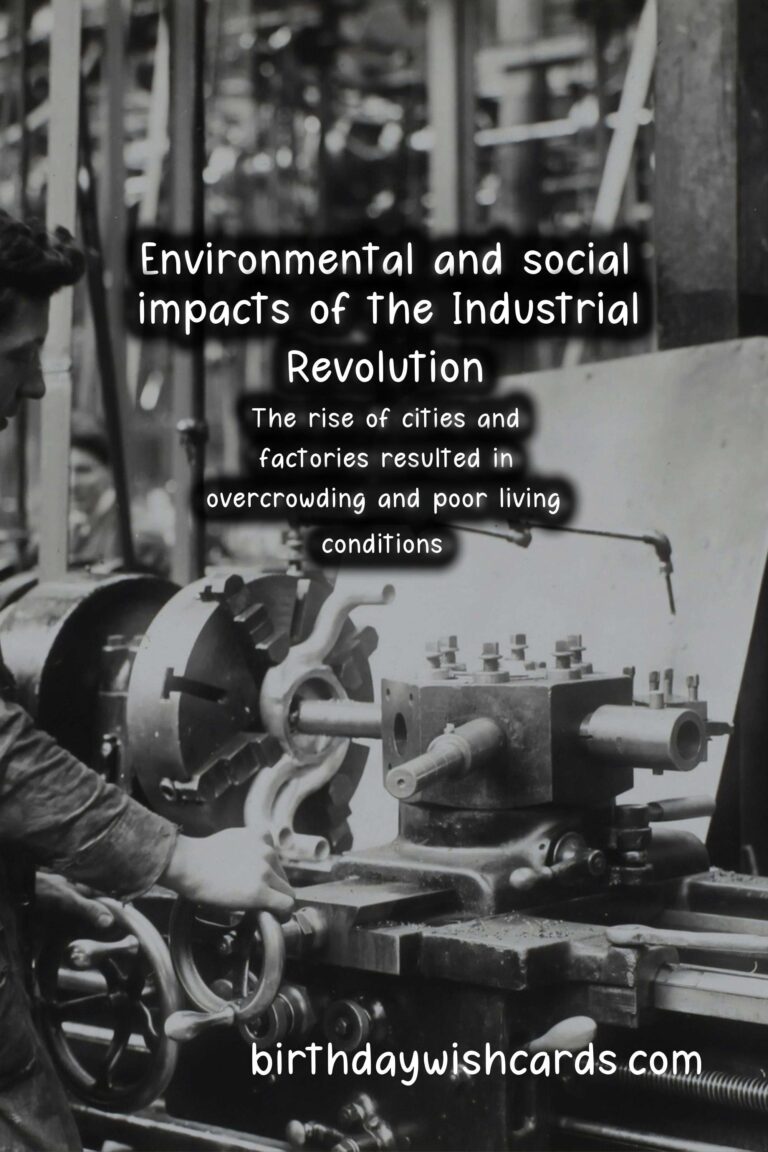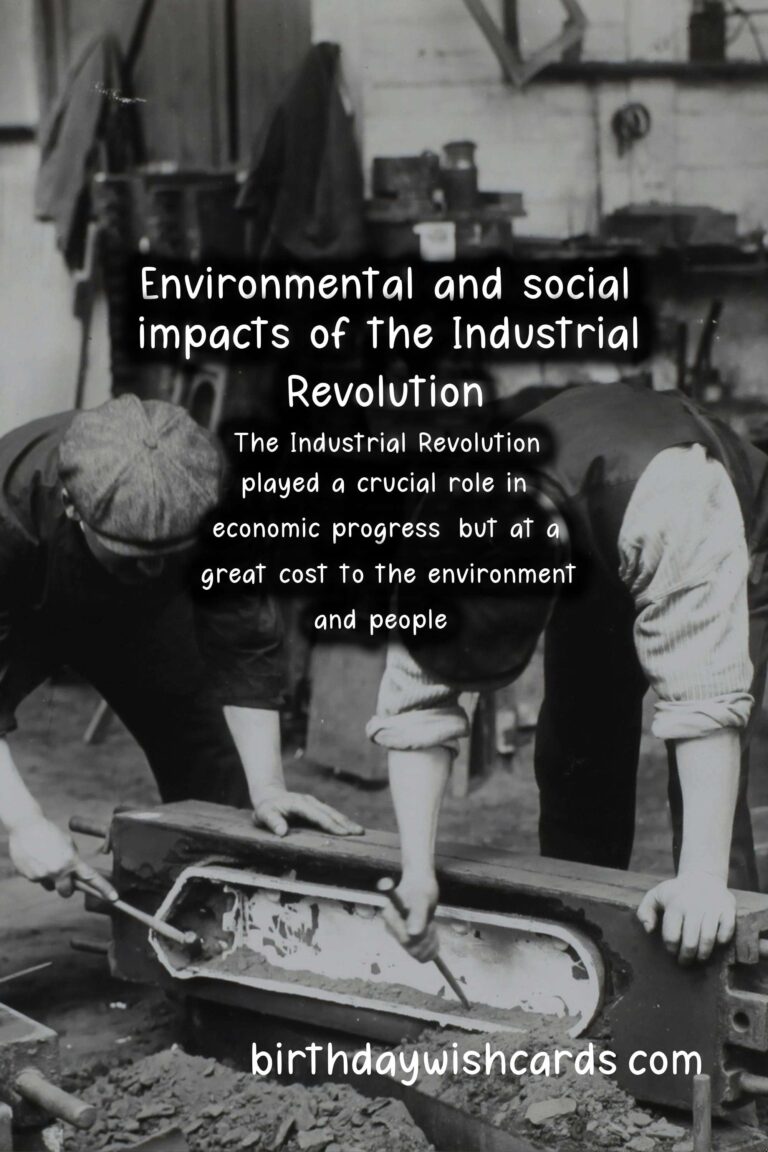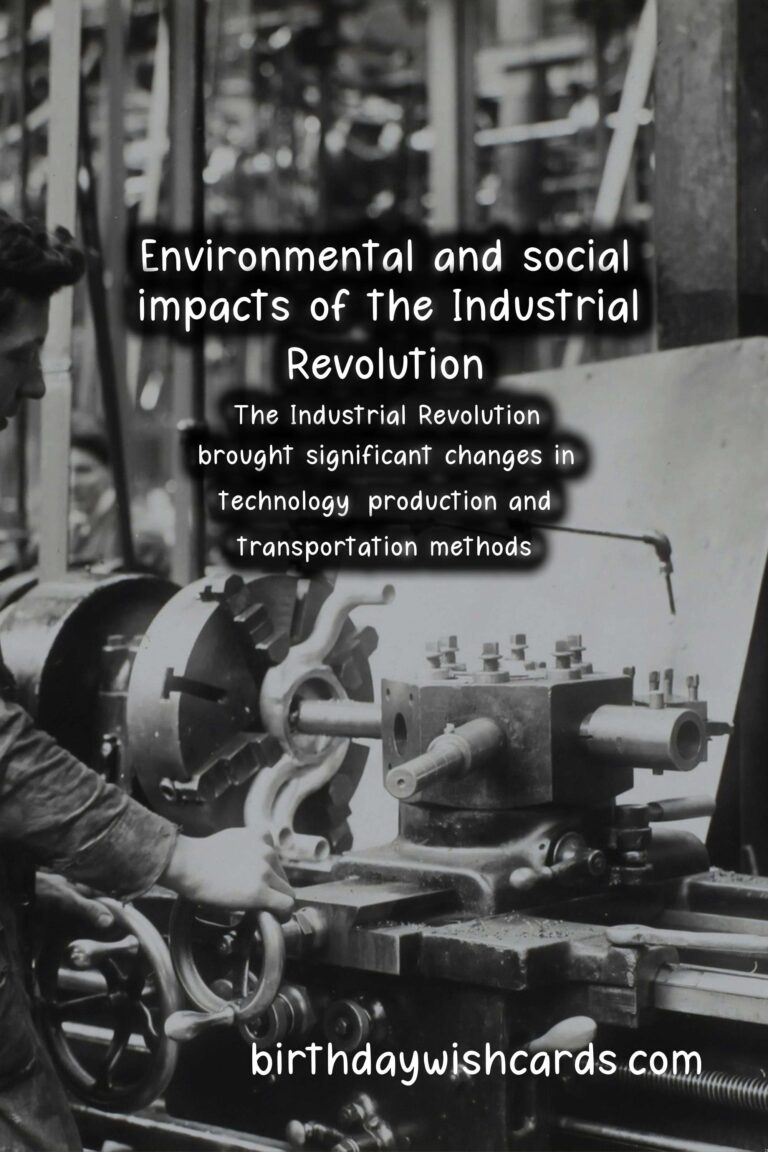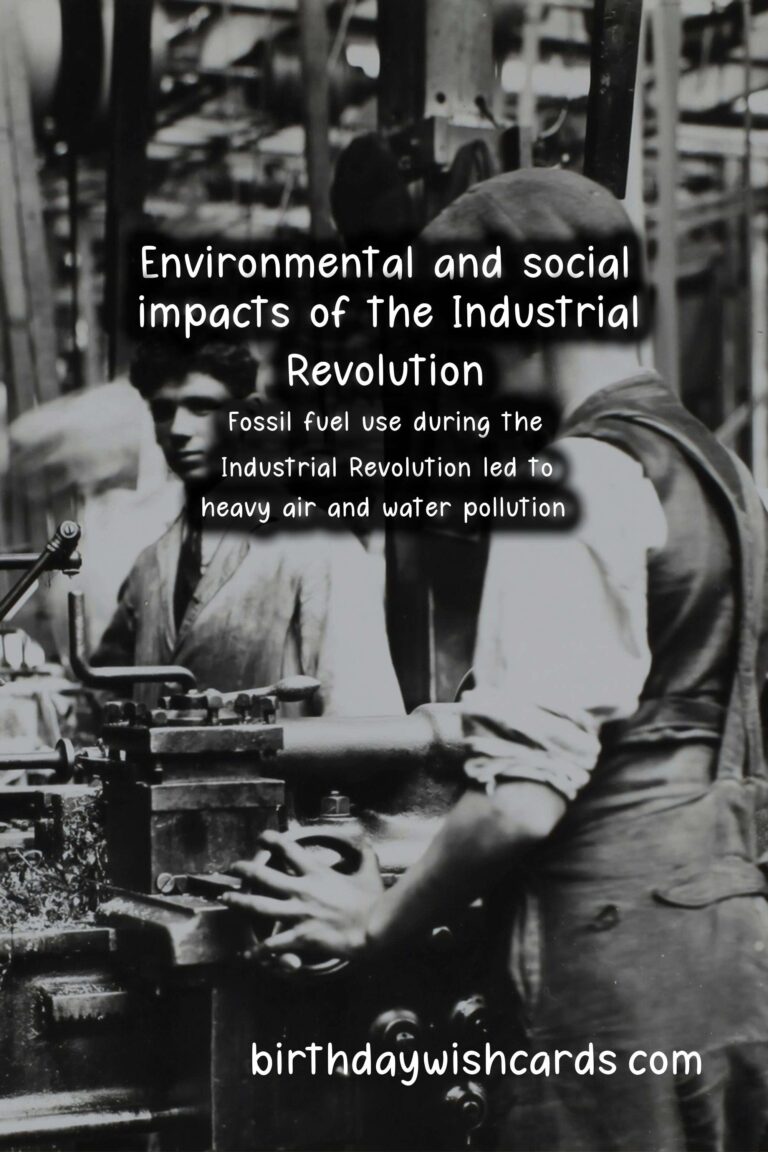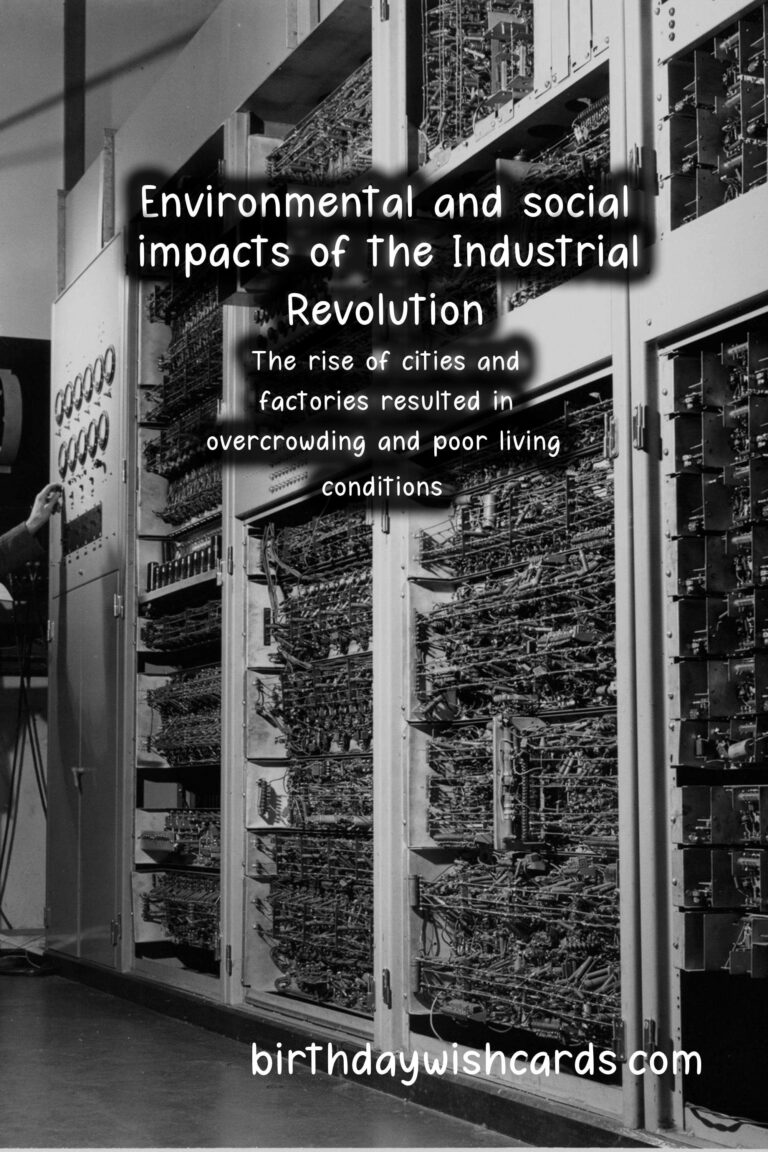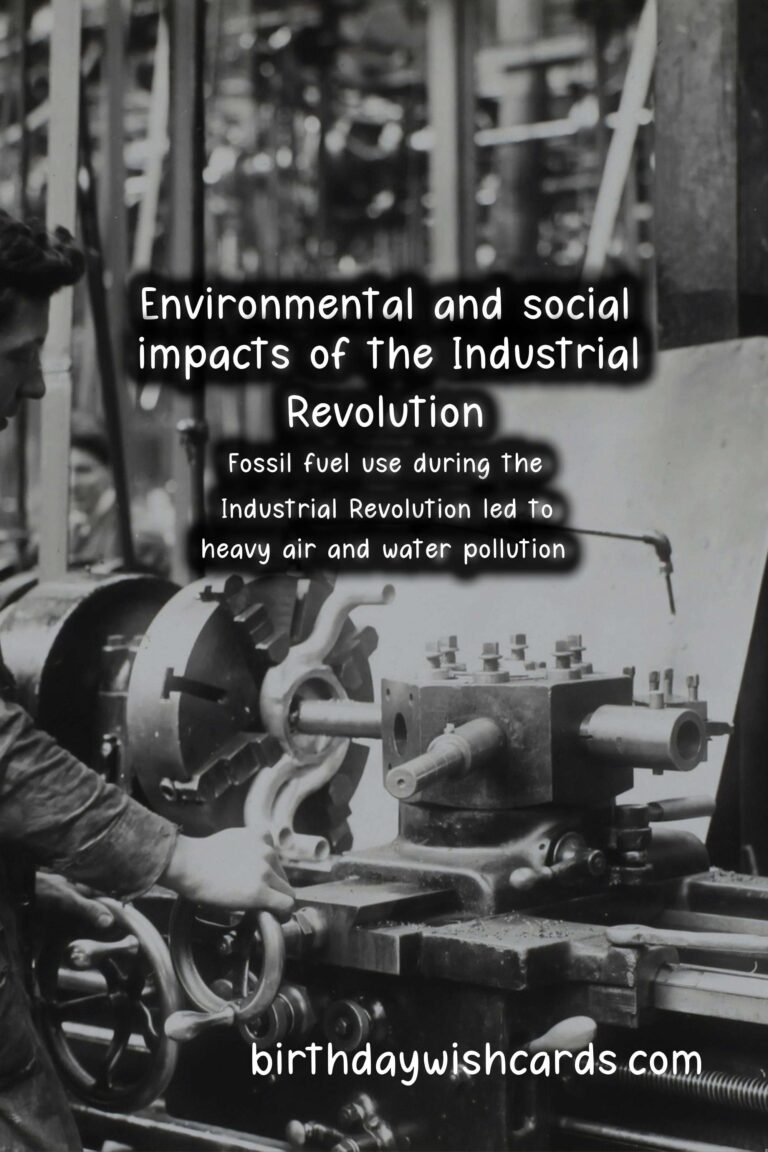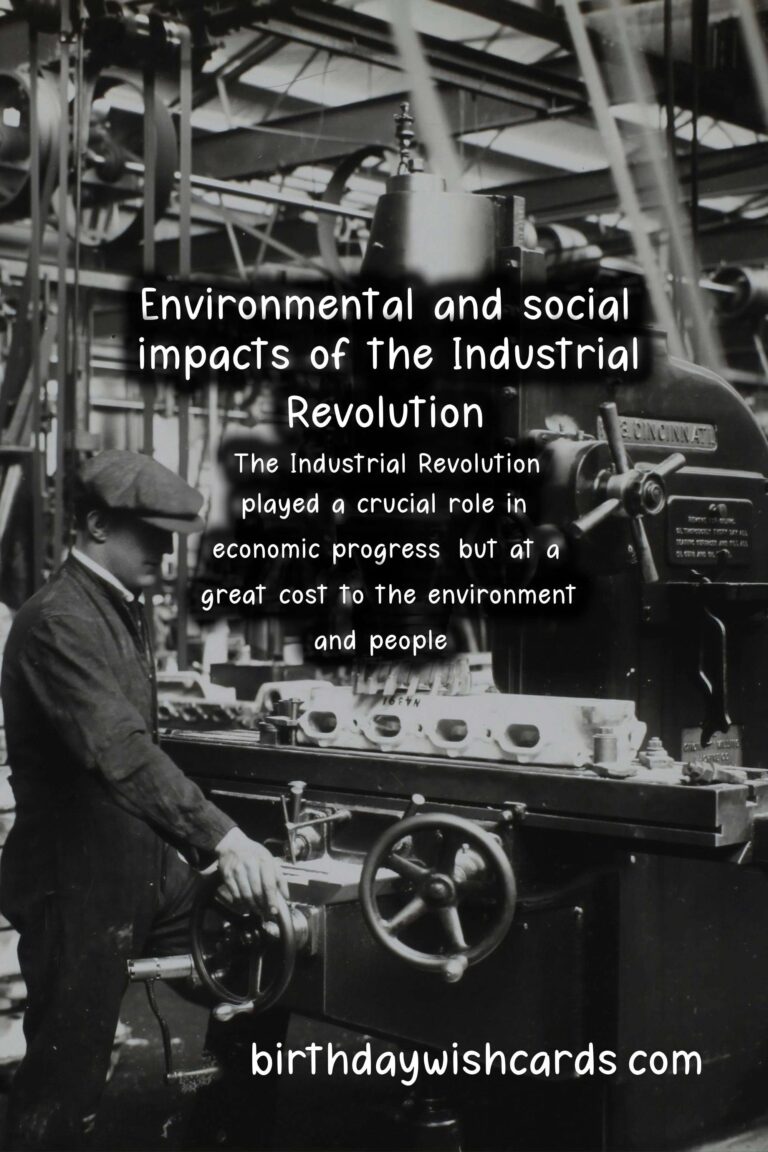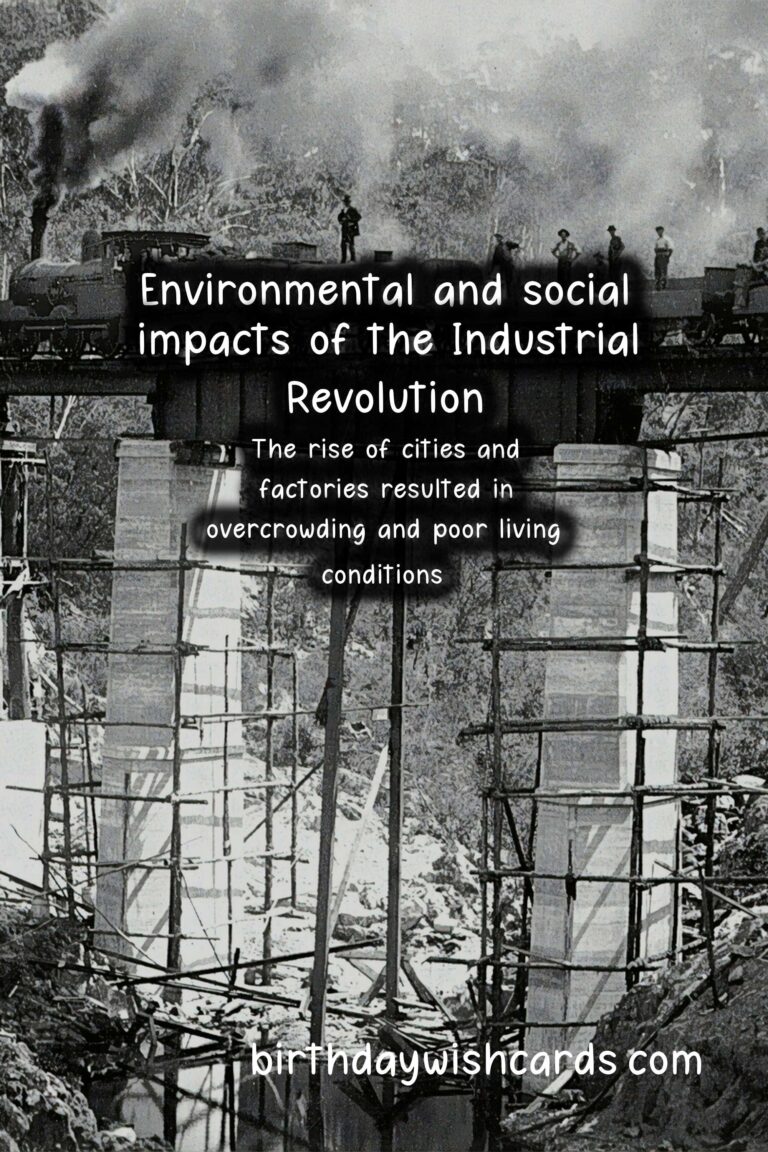 The Industrial Revolution, which spanned from the late 18th to mid 19th century, marked a significant shift in the way societies and economies operated. With advancements in technology, production and transportation methods, there was tremendous growth in wealth and industry. However, as we have come to realize, this progress came at a great cost to the environment and people. Thus, it is necessary to rethink the traditional narrative of the Industrial Revolution, and consider its impact on the environment and society.The Industrial Revolution was driven by the use of fossil fuels, particularly coal, to power steam engines and machinery. This resulted in heavy air and water pollution, significantly altering the environment. The thick layers of smog in cities led to widespread respiratory illnesses, while contaminated water sources caused diseases such as cholera. The exploitation of natural resources also took a toll on the environment, leading to deforestation and loss of biodiversity.The social changes brought about by the Industrial Revolution were equally significant. Large scale migration from rural areas to cities in search of employment led to overcrowding and poor living conditions. The rise of factories saw the creation of a new working class, who were subjected to long hours of labor and unsafe working conditions. Child labor was also prevalent, with children as young as five being employed in factories.There is no doubt that the Industrial Revolution played a crucial role in the economic progress of nations. However, it is important to recognize the negative impacts it had on the environment and society. As we continue to face the consequences of climate change and social issues such as income inequality, it is essential to rethink the way we view the Industrial Revolution and its legacy.Rethinking the Industrial Revolution does not mean completely disregarding the advancements it brought about. Instead, it calls for a more balanced view that takes into account both the positive and negative aspects. The lessons we can learn from the Industrial Revolution can help us make more sustainable decisions in the present and future.The good news is that efforts are being made towards shifting to cleaner and more sustainable forms of energy and production. However, it is crucial that we also consider the social aspects of progress and strive for a more equitable society.The Industrial Revolution may have been a turning point in our history, but it is not set in stone. By rethinking its impact on the environment and society, we can pave the way for a more sustainable and inclusive future for generations to come. The Industrial Revolution brought significant changes in technology, production and transportation methods. Fossil fuel use during the Industrial Revolution led to heavy air and water pollution. The rise of cities and factories resulted in overcrowding and poor living conditions. The Industrial Revolution played a crucial role in economic progress, but at a great cost to the environment and people. We need to rethink the traditional narrative of the Industrial Revolution and consider its impact on the environment and society.
The Industrial Revolution, which spanned from the late 18th to mid 19th century, marked a significant shift in the way societies and economies operated. With advancements in technology, production and transportation methods, there was tremendous growth in wealth and industry. However, as we have come to realize, this progress came at a great cost to the environment and people. Thus, it is necessary to rethink the traditional narrative of the Industrial Revolution, and consider its impact on the environment and society.The Industrial Revolution was driven by the use of fossil fuels, particularly coal, to power steam engines and machinery. This resulted in heavy air and water pollution, significantly altering the environment. The thick layers of smog in cities led to widespread respiratory illnesses, while contaminated water sources caused diseases such as cholera. The exploitation of natural resources also took a toll on the environment, leading to deforestation and loss of biodiversity.The social changes brought about by the Industrial Revolution were equally significant. Large scale migration from rural areas to cities in search of employment led to overcrowding and poor living conditions. The rise of factories saw the creation of a new working class, who were subjected to long hours of labor and unsafe working conditions. Child labor was also prevalent, with children as young as five being employed in factories.There is no doubt that the Industrial Revolution played a crucial role in the economic progress of nations. However, it is important to recognize the negative impacts it had on the environment and society. As we continue to face the consequences of climate change and social issues such as income inequality, it is essential to rethink the way we view the Industrial Revolution and its legacy.Rethinking the Industrial Revolution does not mean completely disregarding the advancements it brought about. Instead, it calls for a more balanced view that takes into account both the positive and negative aspects. The lessons we can learn from the Industrial Revolution can help us make more sustainable decisions in the present and future.The good news is that efforts are being made towards shifting to cleaner and more sustainable forms of energy and production. However, it is crucial that we also consider the social aspects of progress and strive for a more equitable society.The Industrial Revolution may have been a turning point in our history, but it is not set in stone. By rethinking its impact on the environment and society, we can pave the way for a more sustainable and inclusive future for generations to come. The Industrial Revolution brought significant changes in technology, production and transportation methods. Fossil fuel use during the Industrial Revolution led to heavy air and water pollution. The rise of cities and factories resulted in overcrowding and poor living conditions. The Industrial Revolution played a crucial role in economic progress, but at a great cost to the environment and people. We need to rethink the traditional narrative of the Industrial Revolution and consider its impact on the environment and society. 
